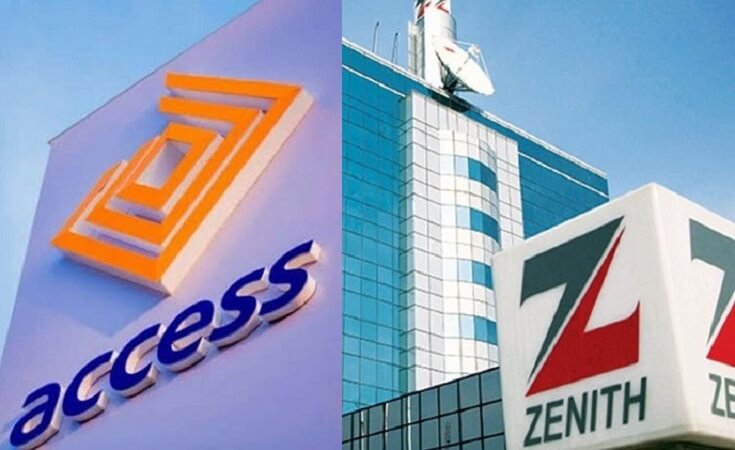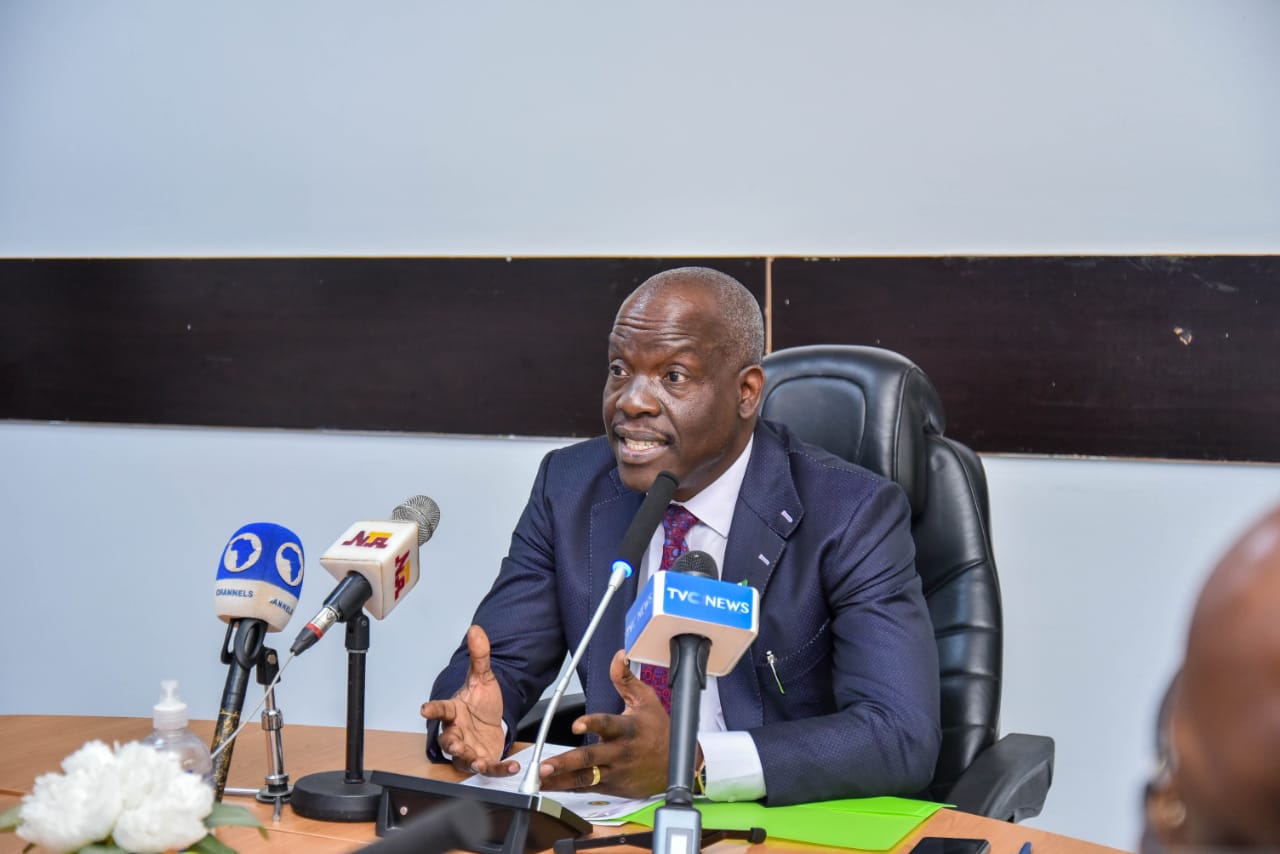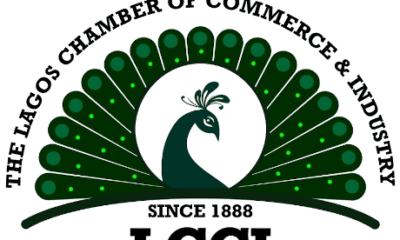Business
Global growth slowed down by about 50% between 2019 and 2022 — LCCI
By Adenike Agunsoye
The Lagos State Chamber of Commerce and Industry President, Asiwaju (Dr.) Micheal Olawale-Cole has said that Global growth, though positive, slowed down by about 50 per cent between 2019 and 2022 due to spiraling inflation, high energy cost, monetary policy tightening, continued disruptions caused by the Russia-Ukraine war, the energy crisis, weak consumer demand, and political upheavals.
This was revealed at the Chamber’s quarterly address on Economic and business issues in Nigeria.
The President stated that looking further into 2023, the war in Ukraine and mounting sanctions on Russia may all continue to impact supply chains for commodities and shocks to financial systems across the world.
He said that the likely failings of the seven countries’ agreement on the Russian oil price cap, the resurgence of Covid infections and the likely return of restrictions, and renewed tensions in the middle east may all continue to keep oil prices upward and volatile in the short term.
He acknowledged that oil prices rose by 44.87 per cent in 2022, the highest in five years.
“With recent projections from the international monetary fund (IMF) that one-third of the world economy would be in recession, Nigeria, though not on the list, may feel like a recession for millions of Nigerians if we bring into focus the latest multidimensional poverty index,” he added.
He recalled that 2022 third-quarter GDP report, Nigeria’s gross domestic product (GDP) grew by 2.25 per cent (year-on-year) in real terms in the third quarter of 2022, lower than the 3.54 per cent recorded in the previous quarter and 4.03 per cent in the corresponding quarter in 2021.
However, he stated that the growth indicates that the economy has recorded an eighth consecutive quarter of positive growth on the back of significant expansionary monetary policies.
“The growth was primarily driven by the services and agriculture sectors, which contributed 7.69 per cent and 1.34 per cent, respectively. The growth recorded in the sectors was higher compared to 7.37 per cent and 1.20 per cent recorded for the services and agriculture sectors in the previous quarter. However, the oil & gas and manufacturing sectors contracted by –22.67 per cent and –1.91 per cent, respectively.
“The decline in oil and gas was attributed to the massive cut in daily oil production, estimated at 1.20 million barrels per day (mbpd), due to oil theft and insecurity. Also, the high inflation rate and continuous rise in interest rates are major factors responsible for the contraction in the manufacturing sector. And with the excruciating burden of inflation, forex scarcity, high energy cost, and weakening purchasing power, many more production activities may be constrained in the coming months,” he said.
The Chamber recommended that, the Federal Government needs to sustain its targeted interventions in selected critical sectors like agriculture, manufacturing, export infrastructure, and tackling insecurity.
“We urge the government to keep track of plans to tackle oil theft, to boost oil exports and earn more foreign exchange. We also commend the government for the effort being made to-date to combat the cartel involved in oil theft. If these efforts had started earlier the nation would have made huge economic gains. We therefore appeal to the government to intensify these efforts.
“We also implore the government to deploy innovative thinking to tackle natural disasters like flooding by implementing environmental guidelines and establishing preventive infrastructure. The impact of climate change on agriculture is becoming more evident by the day, and quick response is critical to avert food insecurity and worsening food inflation.”
He advised that to reduce the shocks from disruptions and to supply chains for raw materials, manufacturers should be assisted with subsidised input and more allocation of forex for importing critical inputs.
He said while the Central Bank of Nigeria (CBN) embarks on monetary tightening to tame inflation, it should ensure that targeted concessionary credit to the private sector is sustained for MSMES.
Speaking on logistics, Olawale-Cole said that logistics has gone up due to the poor state of roads and the lack of connection among farms, factories, and markets.
The Chamber commends the Federal Government for the recent effort to improve infrastructure, such as the completion of the second Niger bridge, which is a key national infrastructure, with immense socio-economic benefits for the contiguous states and indeed the entire nation. The President said that the project was funded through the Presidential Infrastructure Development Fund (PIDF) created by president Muhammadu Buhari and managed by the NSIA.
He said the Chamber wants to see more of such developments for the benefit of the organised private sector.
Business
Zenith Bank, Access Bank bag nominations for African Banker Awards 2024


African Banker magazine has announced the shortlist of nominees for this year’s edition of its African Banker Awards. Since its inception in 2007, the African Banker Awards has recognised the exceptional individuals and organisations driving Africa’s rapidly transforming financial services sector.
Zenith Bank and Ecobank were nominated for the Bank of the Year award while Access Bank and First Bank of Nigeria Plc were nominated in the Trade Finance category.
The Award winners will be announced during a spectacular gala dinner ceremony on the 28th May, in Nairobi, Kenya – a part of the official programme of The Annual Meetings of the African Development Bank Group.
The African Banker Awards is organised by IC Events. It is held under the patronage of the African Development Bank. The Awards’ Platinum Sponsor is the African Guarantee Fund, with African Export-Import Bank and Vista Bank as the Gold Sponsors, and the Cocktail Reception being sponsored by African Trade & Investment Development Insurance.
Nominees were selected from a record number of entries from across the entirety of the African continent. For the first time in the Award’s 18 year history, three nominees for the most prestigious ‘Banker of the Year’ are women, reflecting the growing number of female leaders in finance.
Speaking about the Awards, Omar Ben Yedder, Chair of the Awards Committee, also noted the growing role of Development Finance Institutions.
“Over the years, we have seen the evolving role of DFIs,” he said. “They are playing an important role in structuring transactions and in catalysing development, often filling the gaps in areas that are under-served or under-represented.”
“That said, the finance gap in infrastructure, trade and climate finance mean that the banking sector as a whole will need to be even better capitalised. But looking back at the 18 years of the Awards, it is night and day when you look at the size of our domestic banks and the transactions they are capable of structuring.”
Business
Pension fund assets drop to N19.69trn in March – PenCom


Data from the National Pension Commission (PenCom) have revealed that Nigeria’s pension fund assets dropped marginally to N19.669 trillion for the period ended 31st March 2024.
This represents a marginal decrease of about 0.45 percent when compared with N19.759 trillion reported as net asset value (NAV) in February 2024.
This was contained in the commission’s monthly report for March 2024 released by PenCom.
According to the report, the total pension fund net asset value dropped to N19.669 trillion in March compared to N19.759 trillion reported a month earlier.
A closer look at the data reveals that investment in FGN securities continues to dominate portfolio allocation with about N12.200 trillion or 62.03 percent of total net asset value (NAV).
Pension Funds also allocated N2.058 trillion to corporate debt securities and N1.779 trillion to money market Instruments.
Investments in ordinary shares of local companies rose by 8.72 percent to N2.082 trillion from N1.915 trillion in February.
Fund II, which is the default RSA Fund under the Multi-Fund Structure, maintained the largest share of the Active RSA Funds allocation with N8.331 trillion or 42.35 percent of the total fund NAV.
Fund III also rose by 1.19 percent from N5.112 trillion to N5.173 trillion maintaining its second position for fund allocation.
Meanwhile, RSA membership for March 2024 rose by 0.22 percent to 10,280,956 from 10, 258,611 members in February 2024.
Pension funds’ NAVs have risen from N14.9 trillion in December 2022 to N19.7 trillion in March, representing a whopping N4.8 trillion or 32.21 percent increase.
For context, between 2021 and 2022, pension fund assets rose by just N1.57 trillion from N13.42 trillion to N14.99 trillion.
The rise is likely linked to a combination of a surge in pension fund contributions and a rise in portfolio values.
For example, FGN Securities has seen its Net Asset Values rise from N9.64 trillion in 2022 to N11.89 trillion as of March 2024.
Business
Oil bid round: FG assures conducive investment environment for investors


The Nigerian Upstream Petroleum Regulatory Commission (NUPRC) has pledged the country’s commitment to break all entry barriers for would-be investors.
The Commission Chief Executive, NUPRC, Mr Gbenga Komolafe gave the assurance during the opening of the Nigerian Pavilion at the Offshore Technology Conference (OTC) on Monday in Houston, U.S.
Komolafe said this was as it is committed to giving robust incentives to new entrants, following the beginning of the 2024 oil bid licensing round.
He added that in line with the mandate of President Bola Tinubu, investors wishing to bid for assets in the 2024 licensing round were assured of seamless entry and had nothing to worry about barriers.
According to him, it is heartwarming to note that Nigeria’s licensing round is coming at the same time Guyana is holding same.
Komolafe said that the offer by Nigeria as an investment destination of choice creates an opportunity for them to make the right choice.
He said that there were 12 oil blocks up for grabs in the 2024 oil bid licensing round.
He noted that the aim of the 2024 oil licensing round is to grow the country’s depleting oil production numbers and oil reserves.
He stressed that the oil bid round would further support the Federal Government’s effort targeted at boosting Foreign Direct Investment(FDI).
According to him, another gain associated with the bid round is an opportunity for the country to grow its local content capacity.
The NUPRC boss said the 2024 OTC is an opportunity for the country to market its oil and gas potential to the global community.
Earlier in his remarks, the Minister of State for Petroleum Resources, Mr Heineken Lokpobiri, assured investors that oil would remain relevant for a long time.
He disagreed that oil could remain irrelevant, urging investors to take advantage of the oil bid round to make investment.
“Historically, no source of energy goes away. So do not be deceived that fossil fuel will go away.
“Talks at the recent global conferences have further proved that fossil fuel will continue to remain, the quicker we extract our oil, the better for us as a country,” Lokpobiri said.
He reaffirmed that the quickest way towards economic recovery for Nigeria was through oil and gas investment.
The minister said the country’s huge oil and gas deposits would mean nothing if they remained on the ground and were not explored.
In his remarks, Chairman, Petroleum Technology Association Nigeria (PETAN), Mr Wole Ogunsanya, said the OTC continued to discuss building a sustainable oil and gas industry across Africa in light of the energy transition.
Ogunsanya commended the minister for honouring the association in declaring the Nigerian pavilion opened.
He also lauded the support of NUPRC and other stakeholders towards supporting Nigerian companies at the 2024 OTC exhibition ground.
He said, “The fact is that Africa requires sustainable energy sources to meet the growing needs of all sectors of its economy and the energy transition is a crucial enabler of sustainable development.”
Recall that about 25 Nigerian companies are participating at the PETAN oil and gas exhibition at the ongoing 2024 OTC.
-
capital market2 years ago
Rt.briscoe, FBNH, Others halts negative performance of stock market
-
Finance3 months ago
Court orders Sen. Victor Umeh to repay N136m bank debt to AMCON
-



 Abuja Update2 months ago
Abuja Update2 months agoUNDP, FG partnership needed to achieve inclusion, equity- Minister
-
Abuja Update1 month ago
Banks drive stock market performance with N147bn gain
-



 Health3 weeks ago
Health3 weeks agoCapacity training will reduce migration of health workers- NPHCDA
-



 Business2 weeks ago
Business2 weeks agoTingo Group unveils Tingo Electric, Tingo Cola drink at Lagos launch
-



 Infotech1 month ago
Infotech1 month agoWorld Backup Day: NITDA urges Nigerians to ensure backup of data
-
News4 months ago
Oil thieves sponsoring malicious media campaign against Navy – Spokesman










